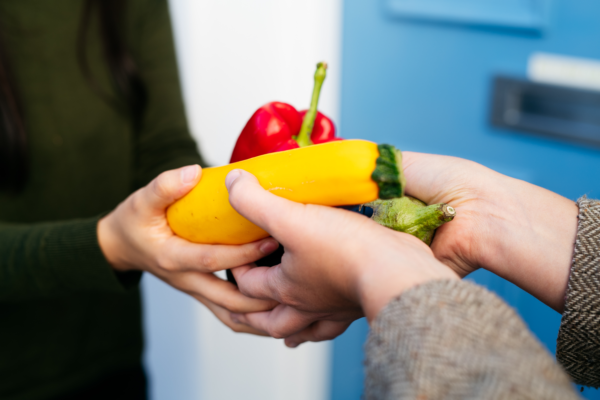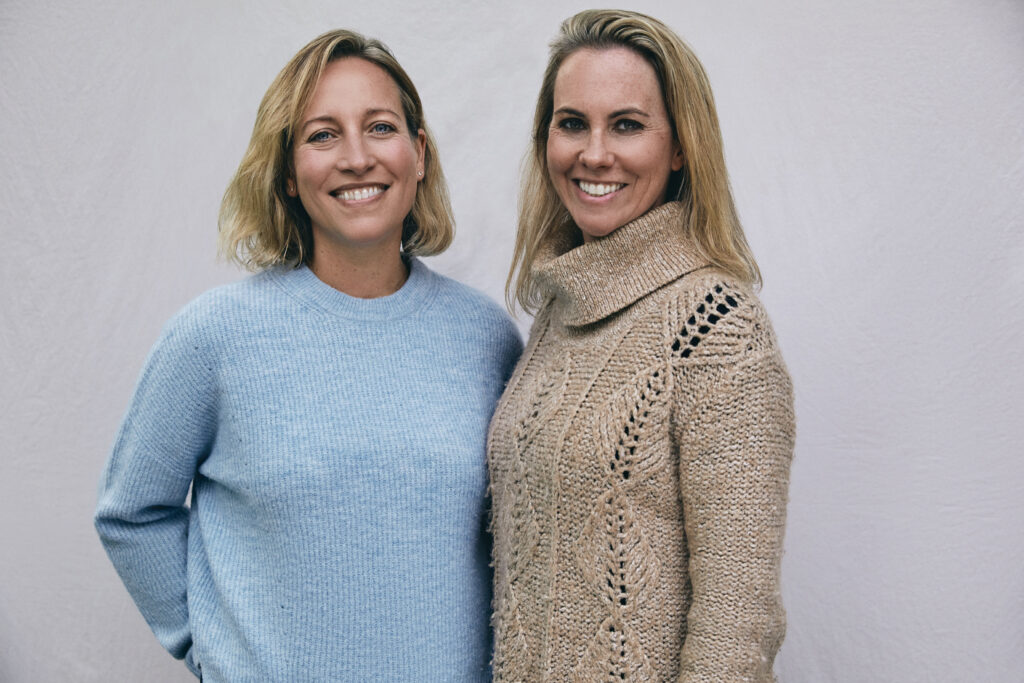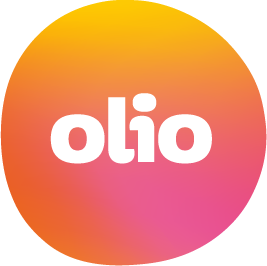 Back
Back
Why Olio helped the VOYAGERS climate festival avoid food waste
🔥 THE HEAT was almost entirely free of food waste – thanks to our partner Olio, which redistributed any food that went uneaten at the festival.

BY JOE ROWAN, June 27 2024
THE HEAT, VOYAGERS.io’s first-ever climate-tech festival, took place on Friday September 20 2024 at the extraordinary Harwell Science and Innovation Campus in Oxfordshire.
THE HEAT is a hands-on, practical, mind-expanding, friendship-building, exploratory, curiosity-led, science-based, creative, artistic, participatory, decentralised, experimental, edgy, live, risky, urgent and unpredictable gathering of the talented people working on climate technologies. THE HEAT is not a conference. Don’t expect dull panels or awful coffee. Instead, come to make new friends, experience science in action, learn and share your knowledge, inspire and be inspired. Bring your most engaged and curious festival mindset.
🔥 THE HEAT was almost entirely free of food waste – thanks to our partner Olio, which redistributed any food that went uneaten at the festival.
🧠 Learn more about Olio in our article below and at https://olioapp.com/en/
Tessa Clarke is attacking food waste at its root — and helping ensure almost no food went to landfill at 🔥THE HEAT. Her startup Olio helps eight million people give away rather than throw away food they can’t use. And that’s tackling a big problem: 2.5 billion tonnes of food are wasted every year, according to the UN Food and Agriculture Organisation.
The daughter of farmers in North Yorkshire, Clarke understands why food waste matters. “I grew up with a keen appreciation of the value of food and how much hard work goes into producing what we eat. As a result of that upbringing, for me food waste is considered a crime.”
Moving back to the UK from Switzerland a few years ago, she was told by the removal team that she had to throw away all her uneaten food. “I wasn’t prepared to do that,” she explains. “I set off on to the streets to try and find someone to give that food to, failed miserably, went back to my apartment, and resorted to cross-border smuggling. And that was when I thought, why isn’t there an app for this?” There began her entrepreneurial journey along with co-founder Saasha Celestial-One. Previously, Clarke was managing director at Wonga, Dyson and EMAP, and Celestial-One ran the startup My Crèche, a London pay-as-you-go childcare provider, as well as business development at American Express.

They started out with a proof of concept via a WhatsApp group back in 2015, and focused on North London postcodes. After rolling the app out across London, they then made it available across the UK in January 2016. It has enabled the sharing of 170 million portions of food and 12 million household items in 60 countries.
For an impact-led project, Olio has raised a remarkable amount of venture funding — a $2.2 million Seed round, $7.6 million Series A, and $43 million Series B. Yet Clarke has never felt that success was guaranteed. “The reality is that the entrepreneurial journey is a series of false summits. So you always think, when I get there, I’ll be happy or I’ll be convinced that it’s working. And when you get there, you realise that you’ve got so much further to go, there are so many more things that need fixing. Especially when you’ve got a problem as large or as existential as the one that we’re trying to solve.”
Olio’s business model is simple – businesses pay Olio to collect their food waste, which is collected by a network of 100,000 volunteers and redistributed to local communities. Partners include Tesco across 2,700 stores, as well as Sainsbury’s, Asda, Iceland, Compass Group, Eurostar and Boots.
Clarke sees no conflict in a purpose-led business seeking profit. “I believe that profit with purpose is going to be the new business paradigm,” she says. “Any business that doesn’t have purpose at its core will lose the licence to exist and will certainly be competitively disadvantaged.”
Olio quantifies its impact in detail. It calculates that its app has had an environmental impact equivalent to taking over 600 million car miles off the road, and has saved over 22 billion litres of water. It has had a social impact too, with over 40% of the Olio community saying that they’ve made friends through the app, 66% claiming that sharing has improved their mental health, and 75% saying that sharing has improved their financial wellbeing.
So, what does the future hold? The 70-strong startup is aiming for a billion users by 2030. “We want to connect the whole world so that everybody is giving away rather than throwing away their spare food and other household items, so that humanity can live within planetary boundaries, so that we can reconnect with our local communities, and so that our world’s most precious resources can be used not wasted.”

Learn more about Olio at OlioApp.com/en/